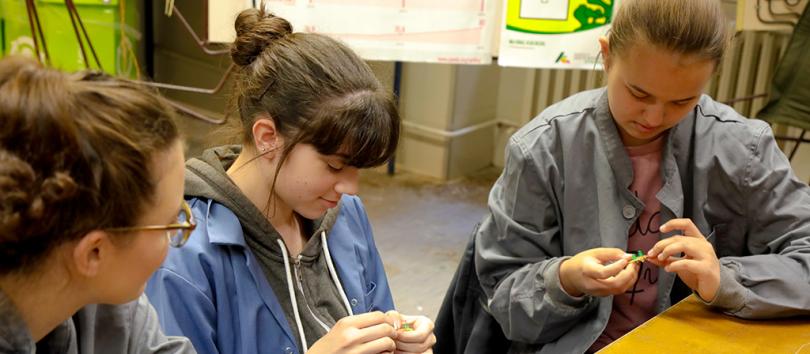
How can partnerships foster innovation at the local level?
Utilizing its experience in promoting vocational training and education reform, ETF has decided to focus more on interinstitutional partnerships as means for fostering local innovation in these areas. Many steps have, therefore, been taken towards this aim. Here is some of what has been achieved so far:
- ETF launched the Community of Innovative Educators in bid to create a hub dedicated for innovation and advancing new approaches in teaching; the idea was to provide educators and teachers with the opportunity to discuss innovative learning practices in a way that would allow for building more personal and professional connections. The network, also, aims at facilitating mutual learning and exchange of expertise among members, as well as, enabling them to embark of professional development projects.
- ETF has started the Creating New Learning initiative with the objective of gathering insights on innovative teaching with the participation of practitioners and education professionals; the initiative plans to find practical solutions to challenges at the grassroots level, and come up with localized interventions that suit different counties' contexts.
- As a knowledge sharing platform, ETF has also launched its Open Space website as a means to deepen knowledge and provide access to development opportunities and innovative resources of learning and capacity building. With a variety of content and myriad of subscribers, the platform is highly regarded as a catalyst for driving innovation and building occupations joints and constructive relations amongst concerned stakeholders.
- With a special focus on skillman partnership and public private partnership, the idea of establishing the ETF Network for Excellence (ENE), a vocational training excellence network dedicated for strengthening partnerships and facilitating flow of knowledge amongst countries and organizations, has long been on ETF's agenda for pushing forward innovative trends and approaches in Vocational Education and Training (VET). The network provides a wide array of facilitations to affiliated technical institutions to learn, grow and develop, which is compatible with ETF's vision to promote creativity not just at the global stage but also in local settings.
- Launched in 2020, the Skills Lab is an initiative of ETF concerned with working with national counterparts in EU partner countries on issues related to skills development, and adaptation of education and training policies. It's worth saying the lab includes two networks, each with a specific remit, a Network of Experts, and international High Level Advisory Group (Advisory Group or HILAG).
- The ETF has been working on the skills dimension of smart specialisation strategies. Smart specialisation is a place-based approach to economic development based on identifying strategic areas for intervention according to the strengths and potential of the economy pioneered by the European Commission’s Joint Research Centres. Together with employers, education and training providers, government and local stakeholders, the ETF has been looking at how skills can support economic development strategies based on smart specialisation, involving a qualitative and quantitative assessment of emerging skills needs and foresight and visioning exercises in different economic sectors in Moldova, Montenegro. In 2021, the ETF extended this approach to the wood and furniture sector in the Rivne region of Ukraine.
For more info on ETF's latest campaign on partnerships. See here: Networks and partnerships | ETF (europa.eu)
Did you like this article? If you would like to be notified when new content like this is published, subscribe to receive our email alerts.